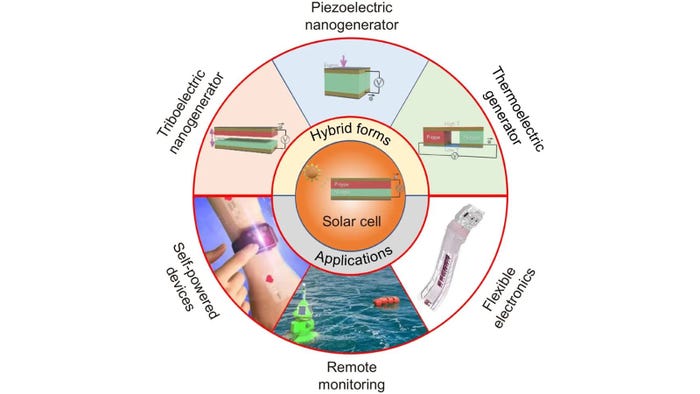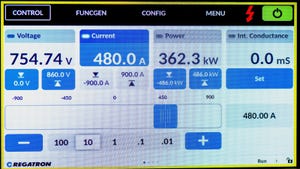7 Unique Advances in Energy Harvesting
These projects are pioneering new approaches and technologies to enable energy harvesting.
November 17, 2023

Energy harvesting, a task with important implications for the battery industry, refers to the process of capturing and converting ambient energy from various sources, such as light, heat, motion, or electromagnetic fields, into electrical energy—which may either be put to direct use or stored in a capacitor or battery. This transformative approach offers sustainable and efficient methods for powering electronic devices, ranging from small-scale wearables to larger industrial systems.
At the core of energy harvesting lies the principle of converting energy from one form to another. For instance, photovoltaic cells transform solar energy into electricity, while piezoelectric materials generate power from mechanical vibrations. Thermoelectric generators, another key player in this field, convert heat differences into electrical energy. The captured energy, often initially in a raw and variable form, is typically conditioned, regulated, and stored for later use, often in batteries or capacitors.
As the world increasingly seeks sustainable and renewable energy solutions, the ability to harness ambient energy sources directly addresses the growing concerns of energy efficiency and environmental impact. Energy harvesting technologies reduce reliance on traditional power grids and disposable batteries, both of which pose environmental and logistical challenges. By integrating energy harvesting capabilities, batteries can be recharged or even replaced by sustainable energy sources, enhancing the lifespan of electronic devices and reducing waste.
Furthermore, energy harvesting is pivotal in advancing the Internet of Things (IoT) and other connected technologies, where the deployment of numerous sensors and devices necessitates efficient and autonomous power solutions. In such applications, energy harvesting not only provides a consistent power supply but also minimizes maintenance requirements, a crucial factor in remote or inaccessible locations.
In this piece, we’ll take a look at some recent developments in the field: Read on to learn about seven unique advances in energy harvesting.
You May Also Like



